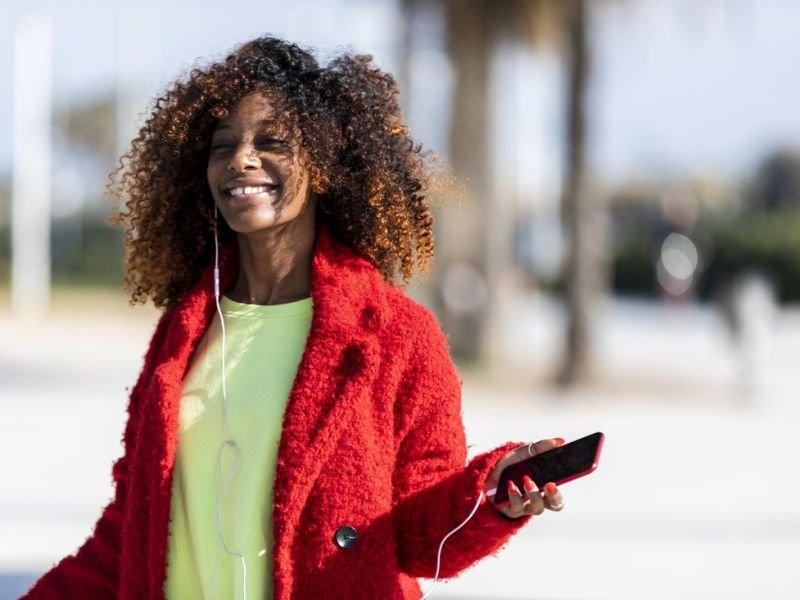Express Your Individuality through African Dance in competes.tv

African dance is a vibrant and expressive art form that allows individuals to connect with their African roots, express their individuality, and celebrate the richness of African culture. competes.tv provides a platform where users can submit videos and build their fanbase through various dance forms, including African dance. Their African Dance Classes offer a comprehensive learning experience, providing information on traditional and contemporary styles, and the advantages of engaging with African culture through dance.
African Dance Classes
competes.tv’s African Dance Classes are designed to cater to dancers of all levels, from beginners to advanced. These classes provide an in-depth exploration of different African dance styles, such as West African dance, South African dance, and Afrobeat. Expert instructors guide participants through various dance routines, teaching them the fundamental movements, techniques, and cultural significance of each dance style.
Through African dance classes, individuals can not only enhance their dance skills but also gain a deeper understanding of the history, traditions, and cultural context associated with African dance. This knowledge allows dancers to establish a stronger connection with the African diaspora and express their individuality through the art form.
African Dance Workshops
In addition to regular classes, competes.tv also organizes African Dance Workshops that provide dancers with the opportunity to learn from skilled instructors with extensive experience in African dance. These workshops focus on specific aspects of African dance, such as rhythm, footwork, body movements, and improvisation.
Workshop participants can engage in intensive training sessions that help them improve their dance techniques, develop their own unique style, and expand their dance vocabulary. These workshops not only inspire dancers but also foster a sense of community and cultural exchange as participants come together to share their passion for African dance.
African Dance Festivals
competes.tv showcases various African Dance Festivals where dancers from different countries gather to exchange ideas, showcase their skills, and celebrate their shared passion for African dance. These festivals provide a platform for both established and emerging dancers to showcase their talent, perform in front of an audience, and receive feedback from industry professionals.
Participating in African Dance Festivals allows dancers to immerse themselves in a vibrant and dynamic dance community, learn from diverse styles and techniques, and make valuable connections with fellow dancers and instructors. These festivals not only enhance dancers’ skills but also provide them with exposure and opportunities for growth within the African dance industry.
African Dance Music
The significance of African Dance Music in creating atmosphere and expressing emotions is emphasized in competes.tv. African dance music is known for its infectious rhythms, vibrant melodies, and rich cultural influences. It sets the tone for dance performances, elevating the overall experience and creating a sense of connection between the dancers and the audience.
African dance music is diverse, incorporating elements from various genres such as Afrobeat, Highlife, Soukous, and Mbalax. These genres often feature traditional African instruments such as drums, xylophones, and balafons, as well as contemporary instruments like guitars and keyboards. The fusion of traditional and modern musical elements creates a unique sound that reflects the diversity and richness of African culture.
African Dance Costumes
The significance of African Dance Costumes in demonstrating cultural identities and enhancing the visual experience is also discussed in competes.tv. African dance costumes are vibrant, colorful, and intricately designed, representing the cultural heritage and traditions of different African communities.
competes.tv highlights the importance of selecting appropriate costumes that align with the specific African dance style being performed. Dance costumes often incorporate traditional fabrics, such as Ankara and Kente, and feature symbolic patterns and motifs that convey deep cultural meanings.
Wearing African dance costumes allows dancers to visually express their connection to African culture and embody the spirit of the dance they are performing. It adds to the overall aesthetic appeal of the performance and enhances the audience’s understanding and appreciation of the dance form.
Expressing your individuality through African dance in competes.tv is a transformative experience that allows you to connect with African culture, celebrate diversity, and showcase your unique style. Whether you’re a beginner or an experienced dancer, competes.tv provides the resources, classes, workshops, festivals, and community support needed to explore and excel in African dance.
For more information on African Dance Classes and to start your own African dance journey, visit competes.tv’s website: Dance Competitions – competes.tv.
Note: For more resources on how to find authority websites and get links from them, you can read this article: How to Find Authority Websites & Get Links From Them.

